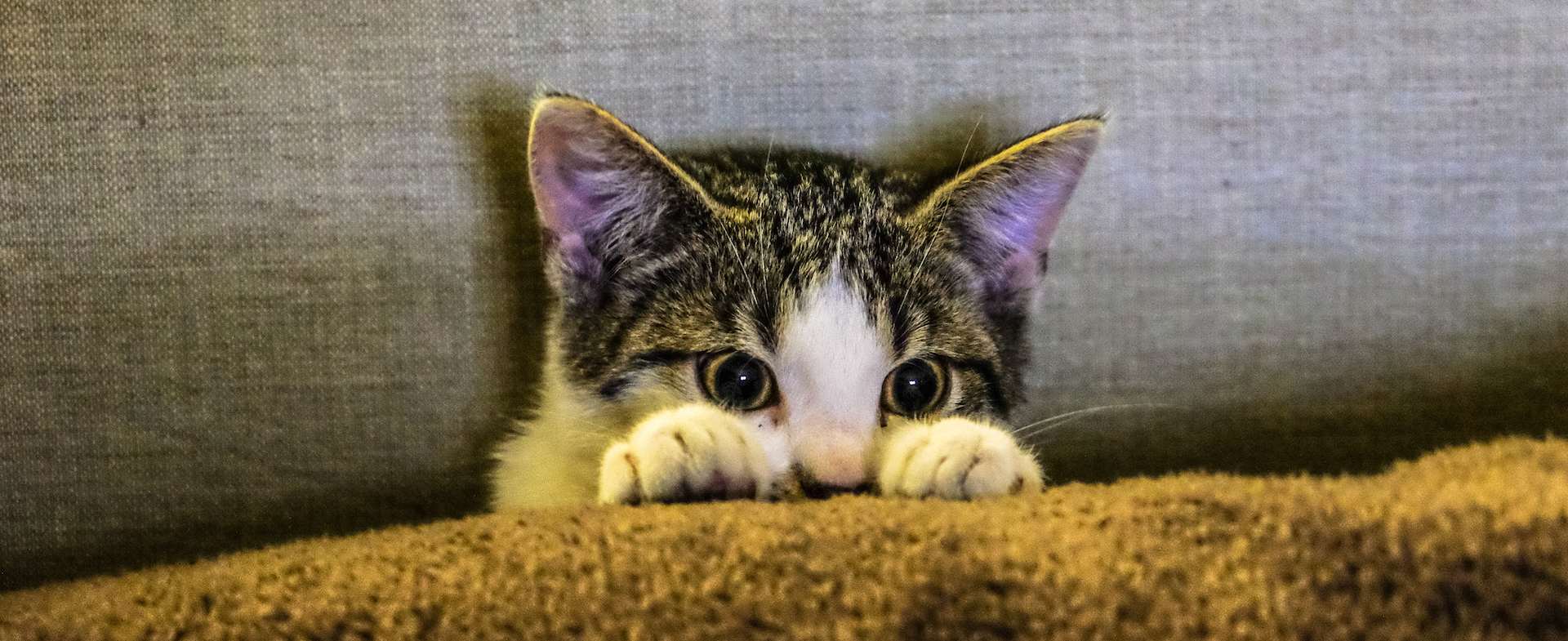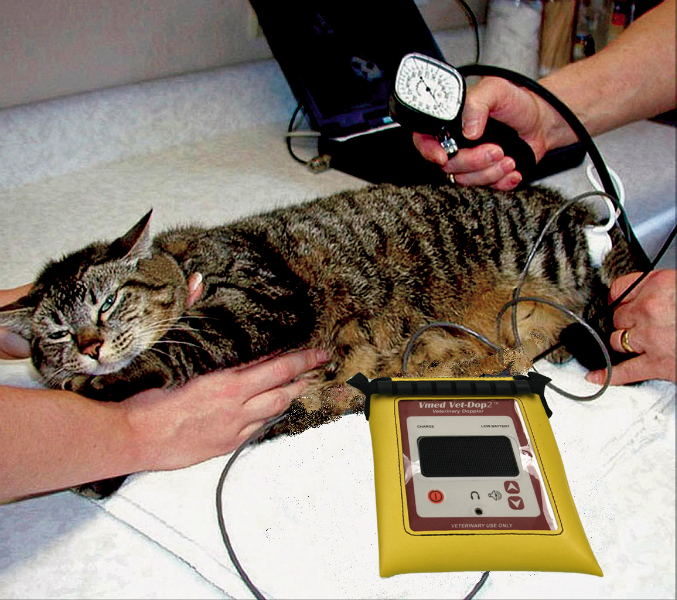Is your cat at risk of high blood pressure?
Your first reaction might be a wry laugh.
What, my couch potato, Kitty? I don’t think so!
Whilst our feline friends are laid back by nature, it’s a fact many older cats are prone to high blood pressure. In fact, it’s fair to say that hypertension (high blood pressure) is a much underestimated condition.

When undetected hypertension can have cat-astrophic consequences, such as:
- Sudden onset blindness
- Strokes
- Seizures
- Weakening of the heart muscle
- Straining organs such as the liver or kidneys.
Is Your Cat at Risk?
Your cat has an increased risk of hypertension if they suffer from:
- Kidney disease
- Overactive thyroid glands
- Diabetes mellitus (sugar diabetes)
However, a significant number of cats have ‘primary hypertension’, meaning no identifiable cause is found. What these cats have in common is they are senior (aged seven years or older) with the risk rising as they age.
What should you Watch for?
Be alert for any changes from normal, such as:
- Filling the water bowl more often
- Larger clumps in the litter box
- Increased appetite but with weight loss
- Poor appetite
- Regular vomiting
This could be a sign your cat has a problem that needs investigating, which could be linked to hypertension.
However, one problem is that hypertension can be a ‘silent’ condition. The cat shows no obvious signs of ill health until they suddenly bump into things or collapse. Therefore, the only safe option is to routinely measure your older cat’s blood pressure.
“A common site for abscess formation is the big chewing teeth at the back of the mouth… Look for a sizeable bump on the cheek, just below the eye…”
Diagnosing High Blood Pressure
Measuring your cat’s blood pressure is simple and non-painful. It involves placing a cuff around their upper leg and holding a small microphone on their paw. Having your cat’s BP measured at home is ideal, because without the stress of journey to clinic, we are better able to get a true reading.
And Finally…
High blood pressure in cats is eminently treatable. Chat to Dr Tash or Dr Chris today, about your options.

